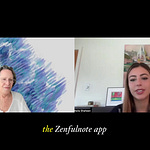Shadow Work as a Social Responsibility to Humanity
In the realm of personal growth, shadow work is often seen as an inward journey—an exploration of the unconscious parts of ourselves that we disown or deny. But shadow work is not just an individual practice. It extends outward into society, shaping politics, culture, and history in ways we often fail to recognize. The collective shadow—our shared, repressed fears, biases, and unresolved traumas—finds expression in the structures we build, the leaders we follow, and the conflicts that dominate the world stage.
As I write in The Book of Shadow Work: "The collective shadow is mostly beyond our control to radically alter in our lifetimes—so the payoff of working with it is harder to grasp in the immediate present. But what we do today absolutely affects how the social shadow expresses itself for generations to come. Understanding that social transformation usually takes longer than a typical human lifetime, shadow work is still a valuable tool for helping to redirect the human stream, one person at a time. It also helps us find clarity in how we withstand the world’s influences, and handle its challenges." This highlights an uncomfortable truth: while we may not see immediate results, the failure to address the collective shadow allows it to grow unchecked, fueling cycles of division and destruction.
The late psychologist Carl Jung, who first conceptualized the shadow, warned that what remains unconscious does not disappear. It manifests externally, often in destructive ways. In modern society, this phenomenon plays out in our political landscape, where fear-based narratives and scapegoating have become the norm. When individuals refuse to face their own prejudices, insecurities, or aggressions, they project them onto others, creating an "us versus them" dynamic that fuels hostility. As Connie Zweig writes in the new preface of Romancing the Shadow, "The world has turned on its axis since the first edition of this book... Many collective shadow issues were still denied, undisclosed and undiscussed—childhood sexual abuse, domestic abuse, religious trauma, addiction, gun violence, income inequality, to name a few. This revised edition appears as urgent interconnected crises have leapt out of the shadow into awareness – nationalistic wars, threats to democracy, climate catastrophe, mass migration, political indoctrination, religious fundamentalism, malignant narcissism, misogyny, racism, homophobia, transphobia, and antisemitism."
The rise of misinformation, cancel culture, and political extremism is not random; it is the result of deep-seated shadow projections on a massive scale. Every time we demonize an opposing political party, stereotype a group, or reduce complex social issues into simplistic narratives, we fall into the trap of shadow projection. We externalize what we refuse to acknowledge within ourselves.
This pattern of projection has historical precedent. During the Salem witch trials, fear of the unknown was cast onto innocent women, labeling them as witches. In the McCarthy era, national anxiety found an outlet in the persecution of suspected communists. Today, political adversaries are often portrayed as existential threats, stripping them of their humanity and reducing them to caricatures. This unconscious habit, as Dr. Connie Zweig notes, has led to "intractable political tribalism, rigid adversarial thinking, and even genocide."
So how do we begin to work with the collective shadow? The answer lies in awareness. If we recognize projection as a defense mechanism, we can begin to dismantle it. Instead of blaming others for the world’s problems, we must examine the roots of our own discomfort. Shadow work at the individual level becomes an act of resistance against social division. It allows us to engage with politics and society with discernment, rather than reacting from a place of fear. Find Dr. Connie’s Latest edition of Meeting The Shadow here if you’re interested in reading more about this- there is a section on politics, enemy-making, shadow projection, and more.
When we acknowledge our own shadows – our biases, our fears, our contradictions – we take the first step toward healing the collective. It is not an easy process. It requires discomfort, self-reflection, and a willingness to see the world in shades of complexity rather than black and white. But as history has shown, the alternative is far worse. By embracing shadow work not just as a personal endeavor but as a social responsibility, we can begin to shift the trajectory of our political and cultural landscape—one conscious act at a time.
With love and gratitude,
Dr. Connie Zweig and Keila Shaheen











